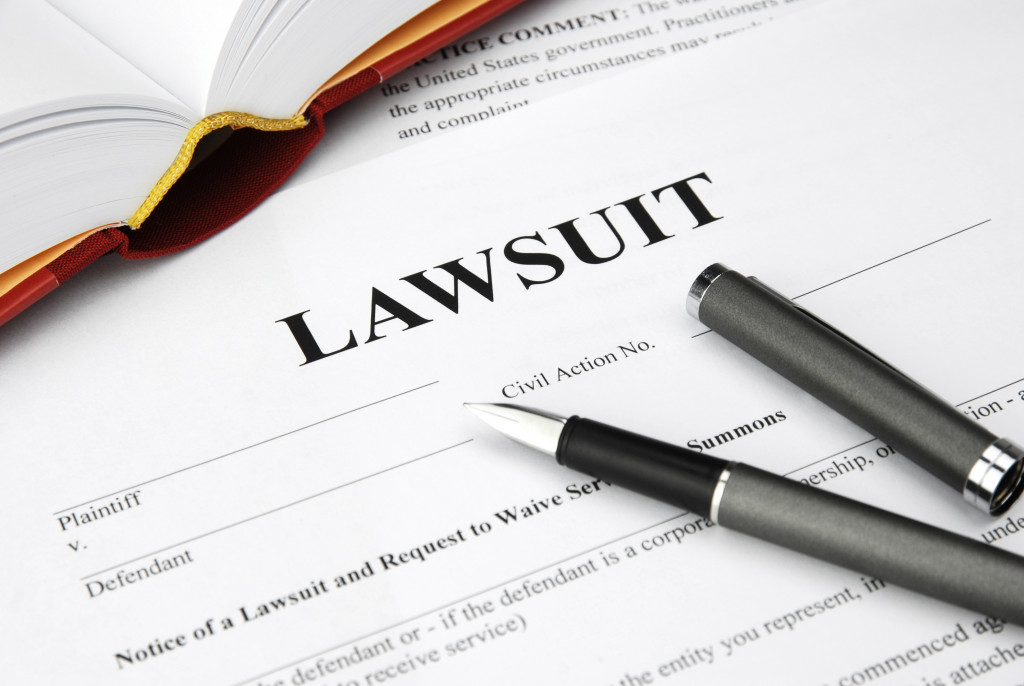Finally being able to get your small business off of the ground is like a dream come true. After all the hard work, late nights, and effort that you exerted into establishing the foundations of your business, you can now freely say that you’re a proud entrepreneur. That’s why you have to work even harder to preserve the sanctity and credibility of your brand.
However, it only takes one dissatisfied customer for all of it to come crumbling down. If you experience having to deal with a customer that’s threatening to file a lawsuit because your products or services caused them to sustain personal injuries, you may feel like your world will be brought to a standstill.
This highly tense situation can feel like a wake-up call, that is if you were awoken with a bucket of ice water. But even though it would be easier to succumb to a downward spiral, you have to push through the shock and take matters into your own hands, especially because it’s your business that’s at stake here.
So before you admit your alleged mistakes and pay compensation, you should evaluate the situation at hand first. Dealing with a situation like this for the first time might make you want to just pay off the customer and sweep the issue under the rug to protect your brand, but you shouldn’t. Here’s what you should do instead:
Step 1: Investigate the Validity of Claim
When a customer approaches you with serious concern, what you should never do is doubt their claims outright or shut them down. Give your customers the benefit of the doubt even when it’s your business on the line because accusing them of false claims might make the situation worse. So allow them to voice their concerns.
If their claims are legitimate and actionable, in which your business is at fault, then you should immediately issue an apology. However, that’s only if their claims can be proven with facts. For instance, if the customer claims that they’re going to file a lawsuit for the injuries they sustained after a slip and fall in your premises, then you might want to investigate the situation more seriously.
On the off-chance that the customer’s claims cannot be proven, then they wouldn’t be able to file a lawsuit because they have no solid evidence. Ultimately, it would be your word against theirs. In situations like these, having insurance will help you avoid dealing with threats that can damage your brand, so you might want to consider getting the right ones.
Step 2: Seek Advice from a Professional
After investigating the matter at hand, it might bode well for you to seek guidance from a legal professional, particularly if the customer’s claims are valid. You can approach a personal injury attorney and discuss what measures you can take so that the issue doesn’t have to reach the court.
Putting yourself in your customer’s shoes might be able to help you look at the situation without taking it personally. You can also ask your attorney regarding the threat of filing a lawsuit and how big compensation is just for the kind of damage your customer sustained from the incident. This way, you’ll know what you’re going up against.
If the customer still insists on filing the lawsuit despite your apologies and efforts to make amends, then you’re going to need a legal representative to back you up. With an experienced attorney by your side, you may be able to minimize the negative impacts of the issue on your small business.
Step 3: Try to Settle out of Court (If Possible)

If worse comes to worst and the lawsuit has been filed, you will have two choices: you can either contest the claim or proceed with the litigation. By choosing the latter option, you may have the chance to settle out of court and reduce the possibility of this issue spiraling out of hand. It might also be better for your business.
There are alternative dispute resolution (ADR) methods like mediation and arbitration that you can undergo to negotiate the settlement. However, if this method still doesn’t work out, you might have to sort things out in court, which can take a long time and a lot more money because litigation is expensive.
That’s why you have to try to avoid having to go to court. Do what you can to come to terms with the plaintiff in ADR and formalize the settlement. The sooner you can sort out the lawsuit, the sooner you can go back to business as usual and work on preventing another issue like this from arising in the future.
Most working days are predictable; you go to work, attend to your customers, and wait until it’s time to close up shop. But it won’t always be that mundane. So you have to be prepared for the worst because there are plenty of risks when you’re running a business, and you’ll never know when they will occur.
